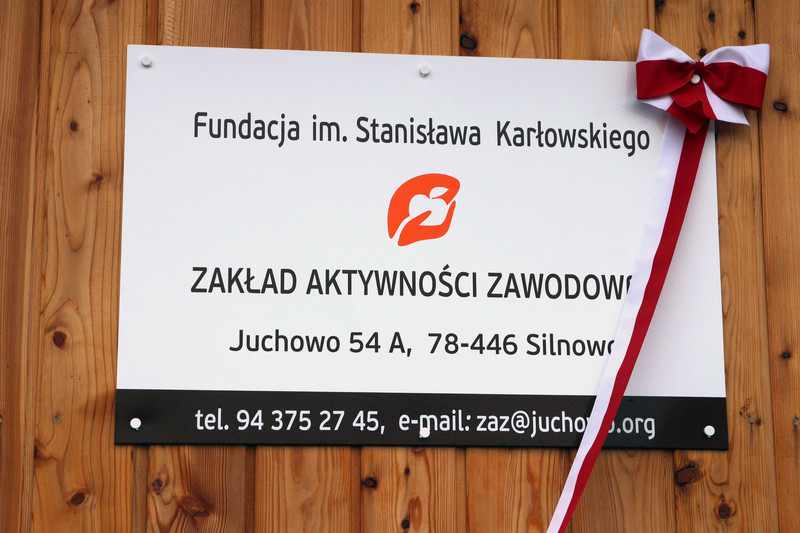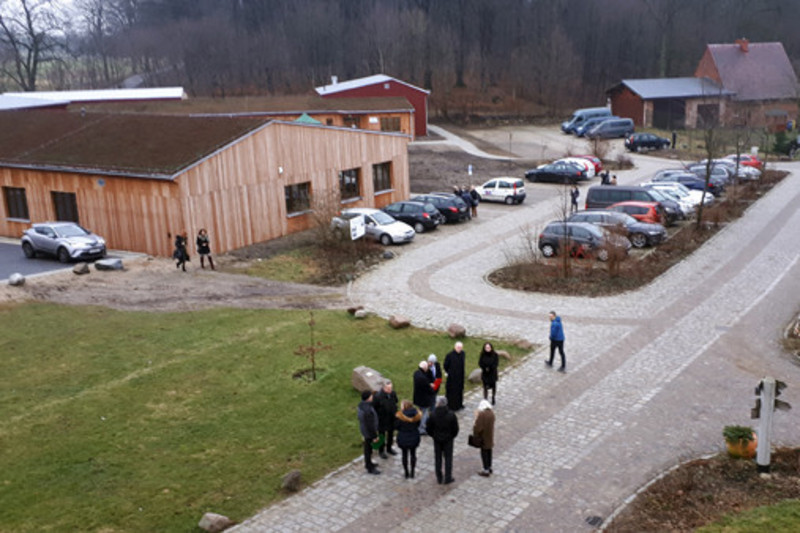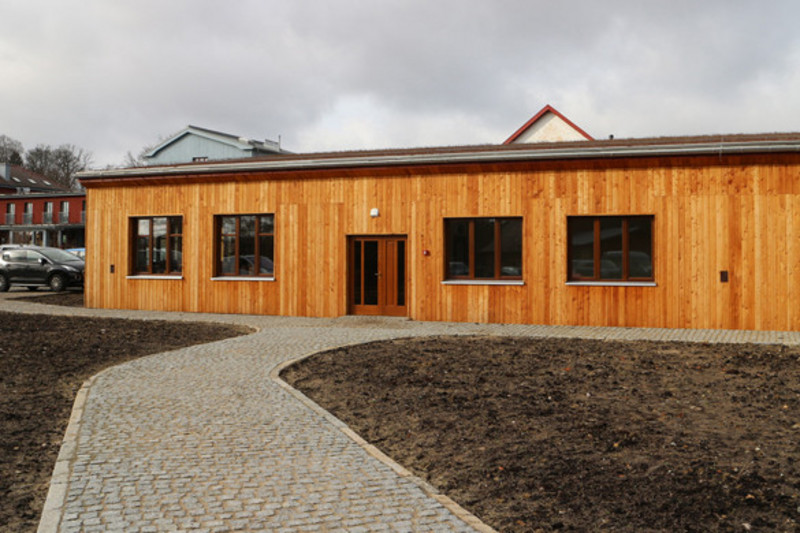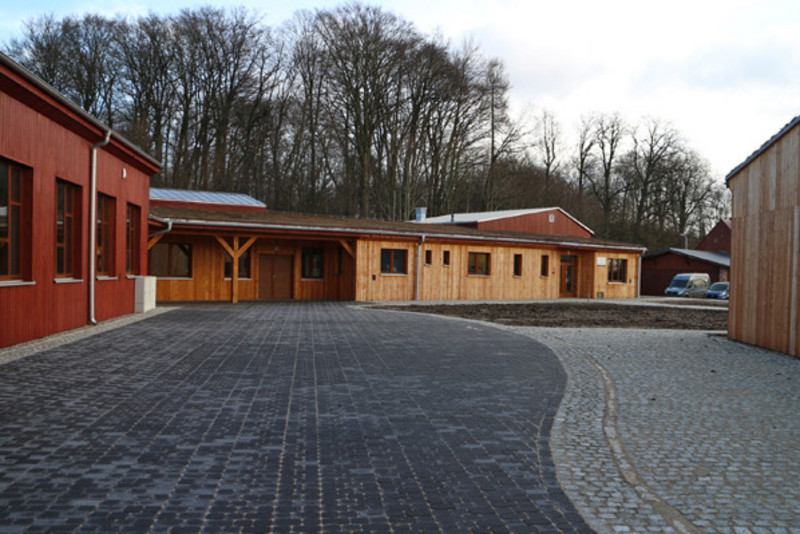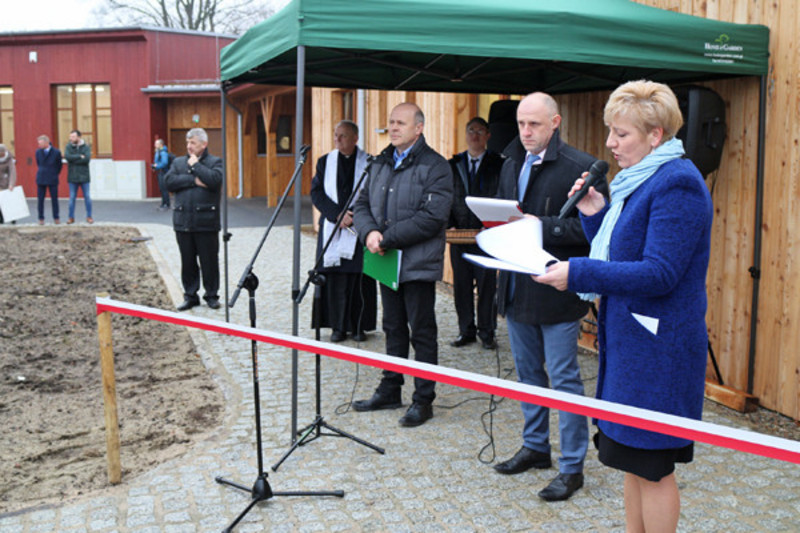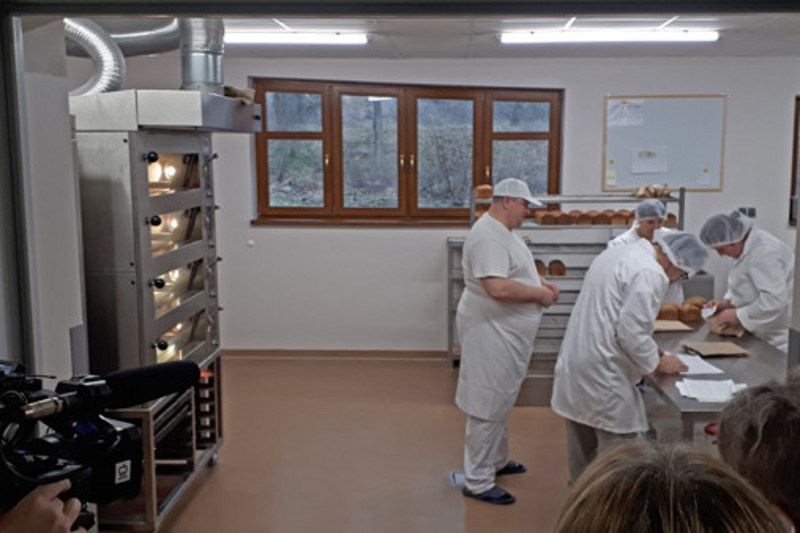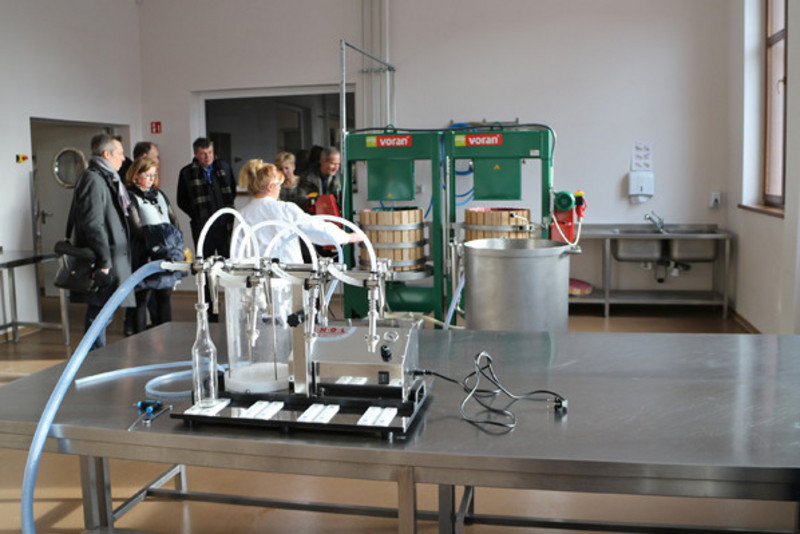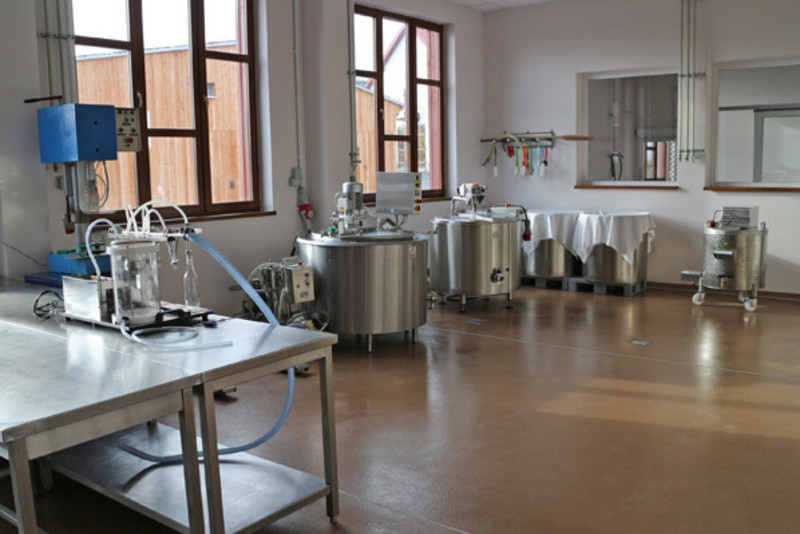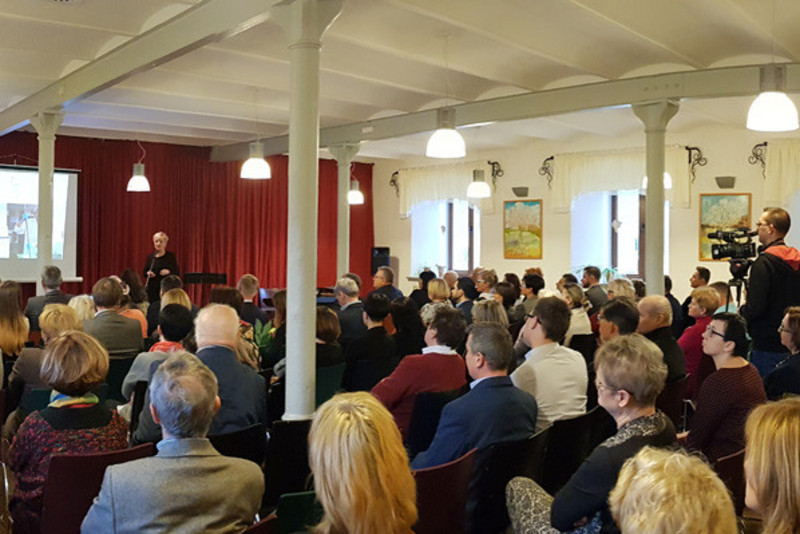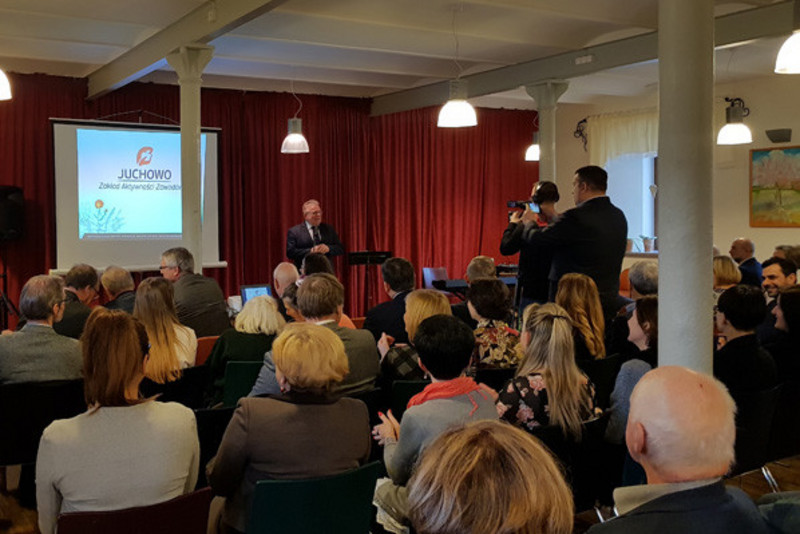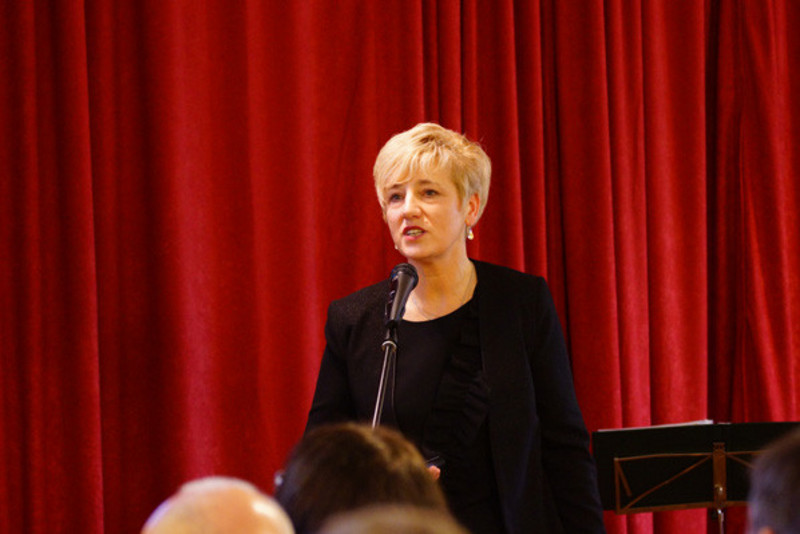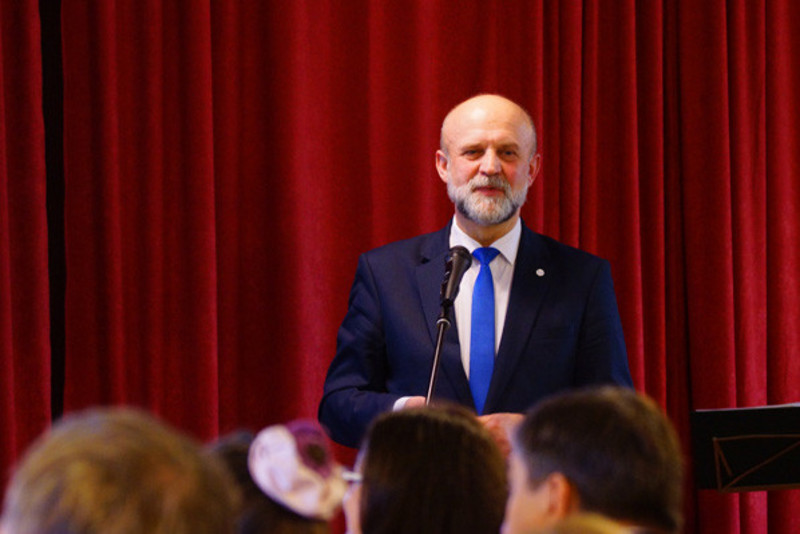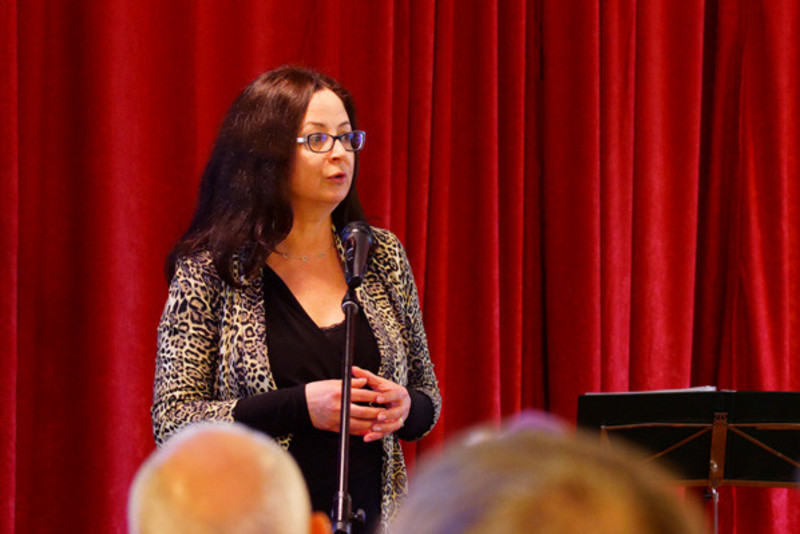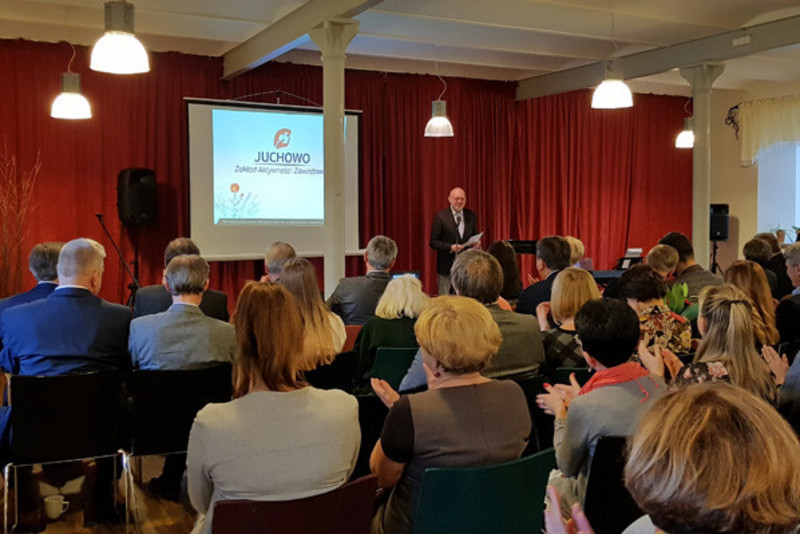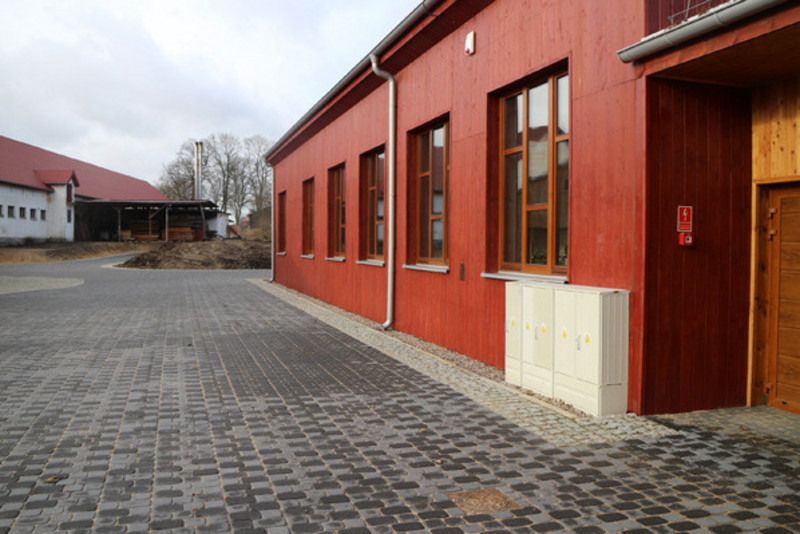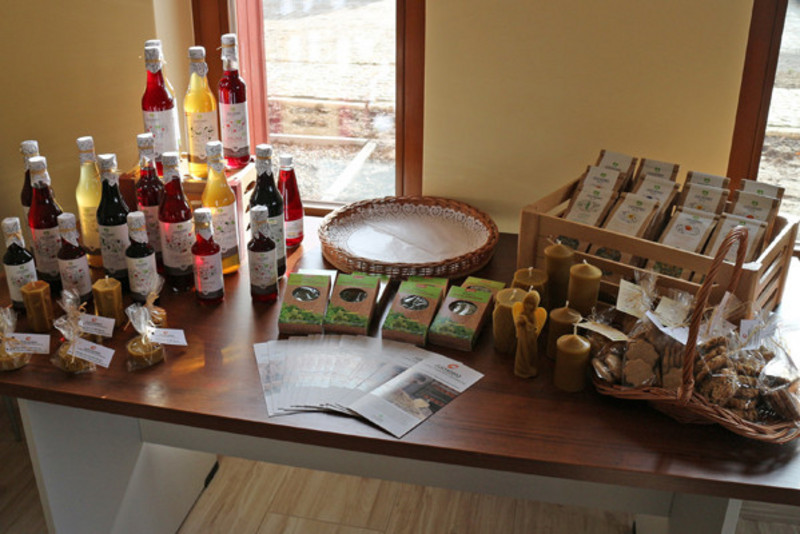ZAZ: The Vision Becomes Reality – Celebratory Opening of Workshop for People with Disabilities in Juchowo Village
“It takes a village” is a saying that comes to mind when one reflects on the development of curative therapy in Juchowo Village, which has now found its high point in the celebratory opening of the “ZAZ” (an acronym for Zakład Aktywności Zawodowej). At the beginning of the millennium, the idea arose to use a 2,000-hectare piece of fallow land in North-West Poland to create a village community. From the beginning, it was important to the initiators to create opportunities for meaningful, restorative activity – including for people with disabilities. ZAZ, as a workshop for this group of people, was therefore a “prenatal” and important element of the project, which the Software AG Foundation has been a part of since the beginning.
Biodynamic agriculture was the foundation for this and other developments in Juchowo. But the guiding question was not how individuals with assistance needs could be integrated into the farm operation. When SAGST joined the project in 2001, it had a different question in mind: “We asked ourselves, what do people with assistance needs, in this place and at this time, really need? What have people already achieved with the existing offers, and what will they need in the future to develop their wishes and possibilities even further?” This is how Wilfried Schneider phrased it during his speech at the opening ceremonies for the workshop. Schneider, a project manager, has been involved in the project since its beginning and has helped bring it to life.
It took 18 years for this question to receive a practical answer, since the project needed to find many other “villagers” before it could enter the world. One part of the recipe for success was that project leaders welcomed collaboration and support from many different sources. As Urszula Sroka, member of the board of the Stanisław Karłowski Foundation and director of curative therapy, discovered: “We always included all participants – employees, partners, supporters, politicians, and the individuals with disabilities themselves.”
As a result, the project has become a true impulse from the region, for the region – as the financing also makes clear: out of a total of 9 million złoty required to realize the project, around 6 million were sourced from a regional program of the West Pomeranian voivodeship. “We want to help people who need support,” said Janusz Gromek, member of the board of the West Pomeranian voivodeship, describing its approach. He described the ZAZ as an exemplary and important part of the region. The mayor of the Szczecinek district, Krzysztof Lis, said: "The ZAZ is also our 'baby' because we were so deeply involved in planning and development - we are proud that ZAZ originated in our region," explained the politician.
In the ZAZ, whose construction SAGST supported with a grant of 3 million złoty, 50 people with assistance needs and 16 employees will work together in management, care, and administration, producing high-quality products for the region. The types of work are versatile and range from producing juices and syrups to bread baking, basket weaving, garden work, or farming.
This diversity also impressed the opening celebration’s guests. "What has been created here over the years fills us with pride and gratitude," emphasized Peter Augustin, Deputy CEO of SAGST. He saw in Juchowo a place where a wide variety of people find space to contribute to social value creation and to interact actively with other people. "People are the focus here, not their limitations or disabilities; because they do not look at the deficits, but at how individuals can develop their potential."
Development, added Wilfried Schneider, is also an important keyword for the future of the ZAZ. He made clear that the real work is only just beginning. “Not parents, not institutions, not legal guardians should decide where their children, or the people that they assist, live and work. It is our responsibility to discover, together with the people entrusted to our care, what they want, what they can imagine for themselves.”
The path to true inclusion must be taken self-confidently and increasingly self-reliantly, in SAGST’s view. Although ZAZ came into the world only recently, the 18-year-old village project has already come of age. It is therefore only natural and logical for the main project to take its fate into its own hands, bit by bit: "We were not disappointed in our confidence that this could become a responsible and free-acting community. We can now experience how this project has matured and essentially relies on its own economic power. We are happy to accompany them as friends while they take this step towards independence," affirmed Augustin.

